Building Support for Academic Success
New York Tech strives to ensure there is a place for every student at the university to thrive and learn, achieving success academically as well as personally. But that can’t happen if students are food insecure or facing financial or other challenges that present significant barriers.
“Our primary focus is on student persistence and retention by removing barriers and providing support,” says Dean of Students Felipe Henao, Ed.D.
New York Tech’s Office of Student Engagement and Development does this in many ways. For example, in 2023, the Grizzly Cupboard, an on-campus resource offering students nonperishable food items at no cost, distributed 11,500 pounds of food. To put this number into perspective, that’s just shy of the average weight of an African elephant (the largest living land animal).
Meals and Contributions
Since opening in October 2020 as part of the Bear Bytes initiative, the Grizzly Cupboard has become an essential resource on the Long Island and New York City campuses by providing students with access to food and wellness items they may need to support not only themselves but also their loved ones.
Additionally, with the help of Dining Services and Food Bank for New York City, both cupboard locations are now able to house perishable goods. During the spring 2023 semester, the New York City cupboard offered three farmers market days, where 150 students received 1,800 pounds of fresh produce.
The benefit to students is tangible. “The Grizzly Cupboard is not just a place to access essential supplies, it’s a supportive community that offers a helping hand when needed the most,” says one cupboard user. “The team behind the cupboard and the generosity of donors have made a significant difference in my life. I’m truly grateful for the assistance I’ve received and the kindness that surrounds this service.”
The two Grizzly Cupboards distributed the equivalent of 9,000 meals last year, an 89 percent increase from 2022. In another slice of the data, the New York City location found that it spent $13,611.74 to stock the pantry from October to December last year. And demand is expected to grow.
As such, the Grizzly Cupboards rely heavily on contributions big and small. Community donations, like fundraising efforts through the nurses at St. Francis Hospital in Roslyn, N.Y., not far from the Long Island campus, have helped bolster the cupboard’s inventory, as have on-campus collection efforts at various faculty and staff events. A donation from the Pierre Toussaint Scholars, an organization of college students who are active in their parish and school communities, also recently provided New York Tech with a large donation of food and essential toiletry items.
At the enterprise level, supermarket chain Stop & Shop has once again generously donated $10,000 for the two cupboard locations; other grants have come from the NYC Human Resources Administration Community Food Connection, which provided the New York City cupboard with more than $20,000 in 2023 and $15,684 for the spring 2024 semester.
As another student shared, “I’m really grateful the Grizzly Cupboard exists. As an international student living and managing finances alone in New York City, this program has been a blessing. I have the chance to eat healthier while saving money, so I couldn’t ask for more. Thank you!”
Expanding Levels of Student Support
Soft launching in spring 2024 is Tech Threads, a “professional closet” that will provide students on the New York campuses with no-cost access to new and gently used professional clothing and accessories. These donations, which can be dropped off at the Office of Career Success and Experiential Education, are intended to remove financial constraints that may prevent students from pursuing internships and other employment opportunities.
Support for New York Tech students strives to care for the whole person. “Our team is constantly taking the necessary steps to make sure that students are engaged, satisfied, and prepared while they’re here at New York Tech,” notes Tiffani Hinds, M.Ed., associate provost for student engagement and development and the driving force behind the creation of many of these initiatives.
Since 2018, the university has also offered the CARE Grant, micro-grants of up to $1,000, to cover students’ immediate needs that might jeopardize their ability to stay in school, such as loss of childcare services, overdue bills, eyeglasses and hearing aids, theft of belongings, and much more. Similarly, the Student Emergency Fund offers one-time assistance of up to $500 to students who have been affected financially by unforeseen circumstances.
To continue evolving its suite of support services to students, this spring, the Office of Student Engagement and Development will launch a basic needs assessment to survey students on the New York and Vancouver campuses to better understand their needs and what measures can be taken to address them.
“We discover, acknowledge, and work to address the needs of our students. When we create these initiatives, we make sure that they are done with compassion and come from the heart because then it becomes more meaningful for our students,” Hinds adds.
Members of the New York Tech community can continue to support students in any number of ways. To learn more about donation guidelines and what items Bear Bytes, the Grizzly Cupboard, and Tech Threads prioritize most, contact Director of Student Engagement and Development Administration and Operations Joanne West (M.S. ’10) or Assistant Director of Student Engagement Hannah Berling.
More Features
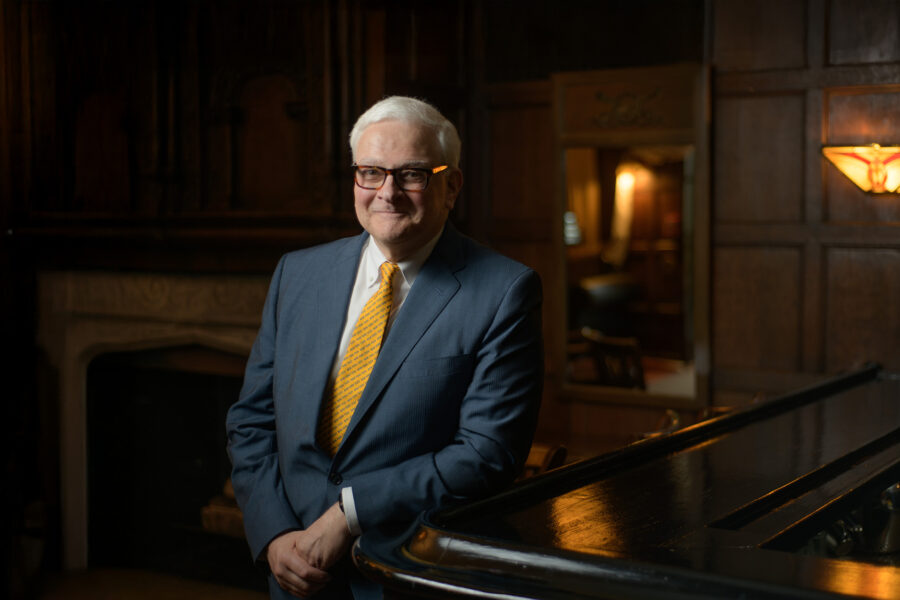
Strength in Leadership
As he prepares to step down as president of New York Tech, we look at Henry C. “Hank” Foley’s legacy of growth, community, and innovation.
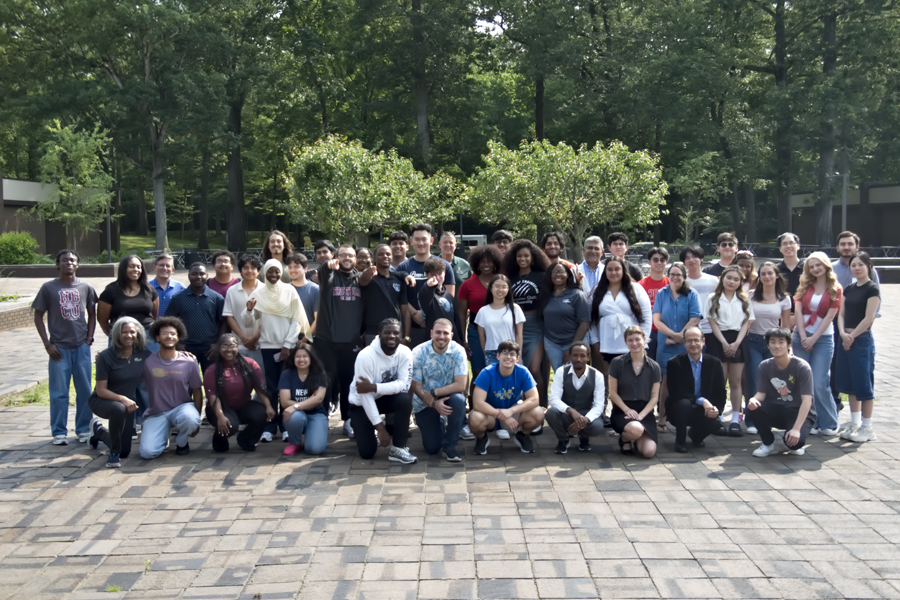
Students Learn About Spectrum Technology From Industry Experts
Industry leaders, faculty, students, and staff from universities across the country gathered on the Long Island campus for Spectrum Sizzle, an undergraduate spectrum workshop funded by the National Science Foundation.
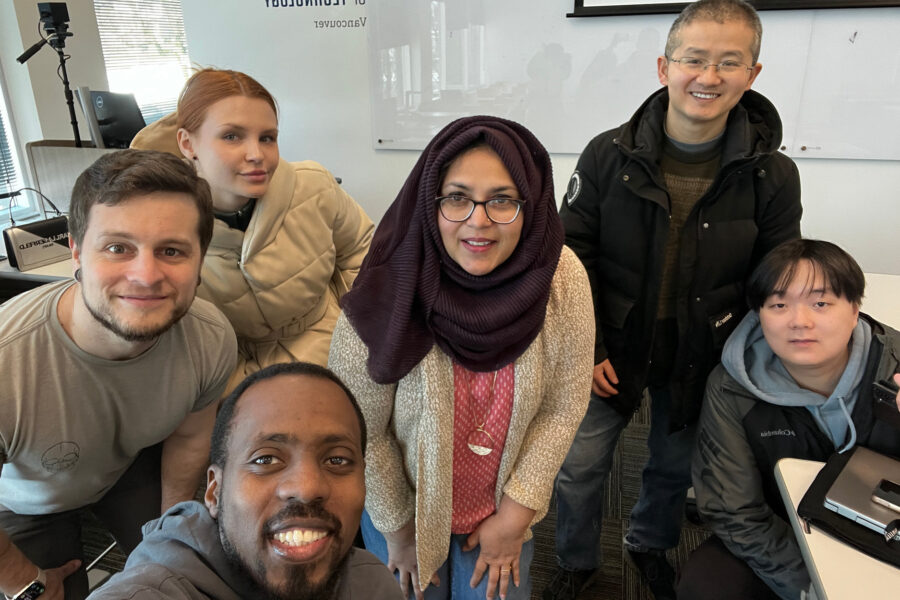
Cybersecurity Graduate Students Rank 25th in MITRE’s eCTF 2025 Competition
First-time participants, 10 cybersecurity students from the Vancouver campus break into the global top 25 in prestigious Embedded Capture the Flag (eCTF) challenge.

Understanding the Cellular Underpinnings of Obesity
In his research, Assistant Professor Henry Ruiz, Ph.D., is looking to understand what makes fat cells grow, which could lead to new and improved obesity treatments.
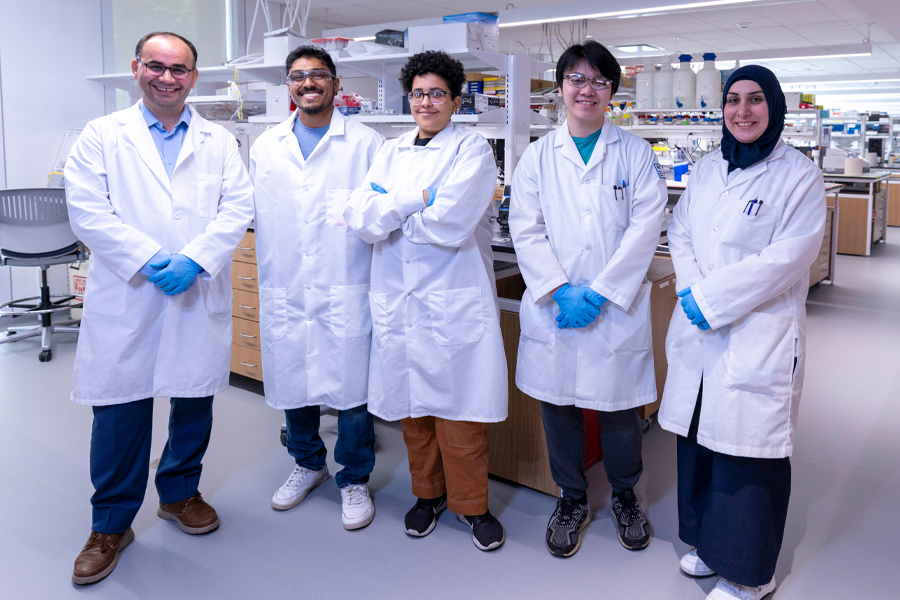
Blueprint for Healing
A multidisciplinary team of students is investigating solutions for wound healing that would speed healing and positively impact the lives of countless people.
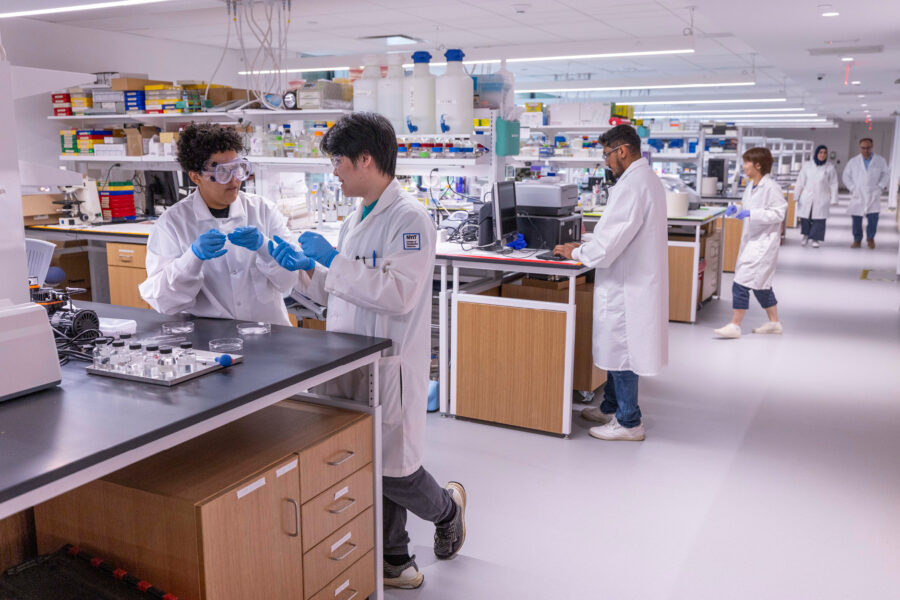
BRIIC by BRIIC
A look at the new Biomedical, Research, Innovation, and Imaging Center (BRIIC).